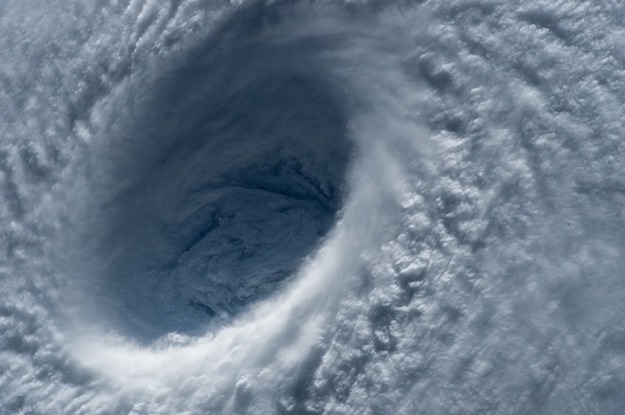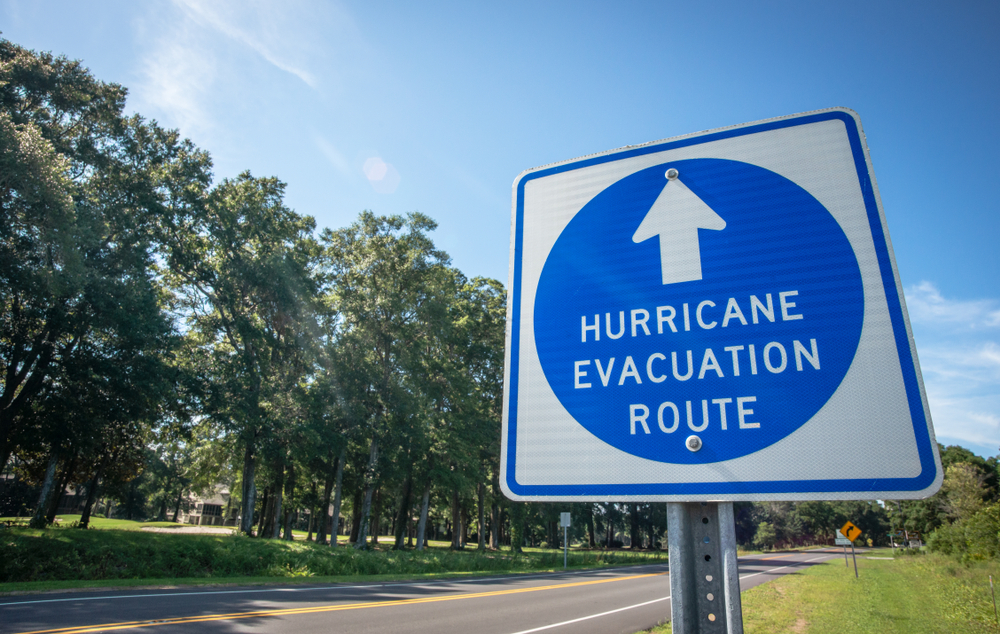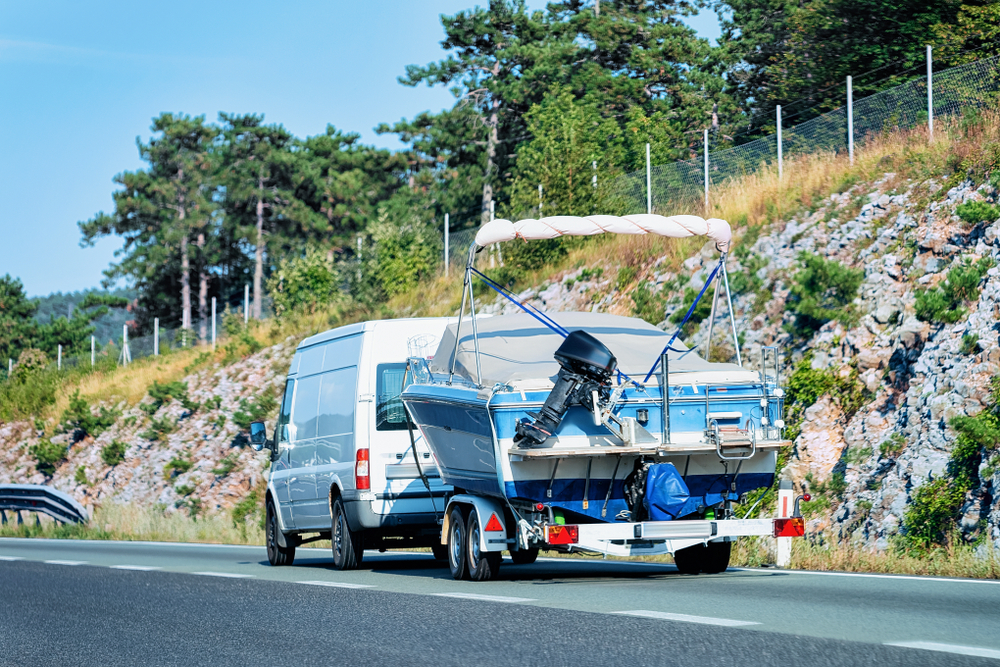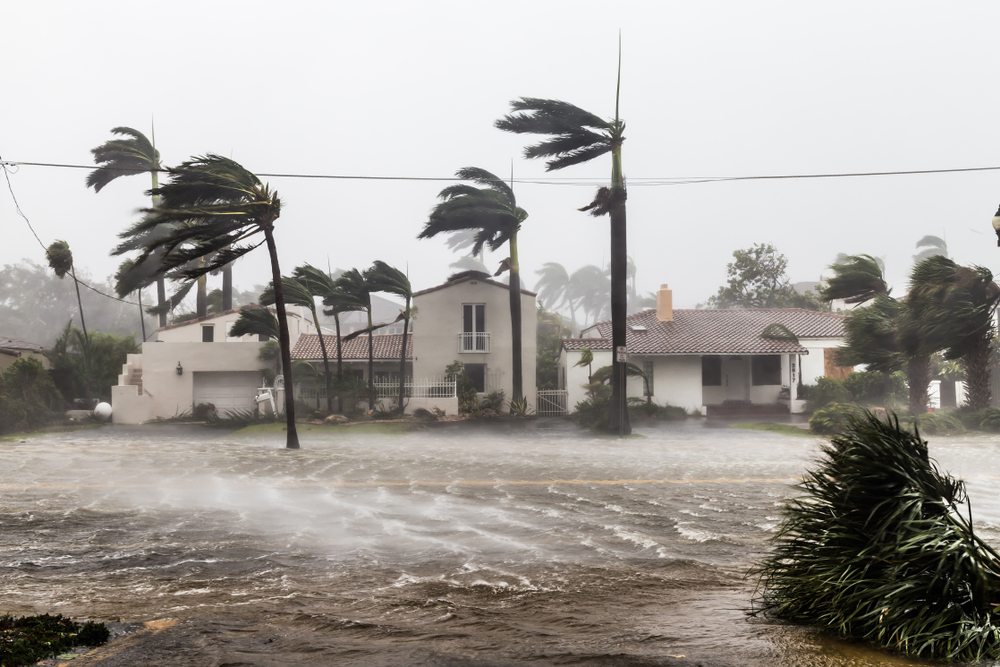Bug Out Bag
Bug In Or Bug Out: When to Flee from a Hurricane

How prepared are you when hurricane season starts? Should you bug in or bug out? It is a must that you practice hurricane preparedness all year round. Here are some tips to help you with that.
Hurricane Preparedness: Bug In vs Bug Out
As a hurricane approaches from the Atlantic, it can be hard to determine just what will happen. The storm could strengthen, fizzle out, change course drastically, and any number of slight alterations that deeply impact your particular situation.
In recent years, we have seen severe storms pummel the entire East Coast, as well as the Caribbean and along the coastline of the Gulf of Mexico.
With this in mind, it can be extremely difficult to decide whether to evacuate or to stay put and protect your home. Especially given the recent uptick in opportunistic looters in wildfire-ravaged Oregon, many people are hesitant to leave their homes and all of their belongings behind. Even if the storm spares them, criminals may not.
There are some basic rules to follow to determine if you should be evacuating ahead of a hurricane. If you choose to wait until an order for evacuation from officials, keep in mind that the traffic will be significantly heavier, and reaching safe accommodations will take much longer.
Bugging Out
1. Low-Lying and Flood-Prone Areas
If you live on a barrier island or high-risk flood zone that could be severely impacted by a storm, it is always recommended that you evacuate. Even if a hurricane is downgraded to a tropical storm, or doesn’t actually make landfall, storm surge and heightened seas can wreak havoc for miles.
2. If Your Home Lacks Structural Stability

If you live on or near the coast in a mobile or manufactured home, or in an RV, it is recommended that you evacuate before being ordered to do so. The high winds that hurricanes can produce (over 150 mph in a Category 5) can destroy homes that lack structural stability.
3. If You Are Evacuating With High-Profile Vehicles

If you will be traveling in an RV or towing a boat or trailer of any kind, you should consider evacuating early. Not only can the winds be an issue for you when traveling, but some roadways and bridges will close to high-profile vehicles as conditions deteriorate.
With the possibility of gas shortages along your route, you will also want to make sure you are able to fill up your tank as needed, ahead of the huge crowds.
4. Consider Your Family’s Needs
If you are evacuating with infants, small children, elderly relatives, or a person with special needs, leaving early will minimize your time spent traveling, which can be extremely helpful. You will want to reach your destination quickly and safely.
5. Know Where You Are Going

Determine your inland evacuation location prior to leaving your home. If possible, arrange to stay with family or friends. If not, locate a hotel or rental property that should be safely out of harm’s way.
Are you traveling with pets? Confirm beforehand that they are welcome to stay with you. In an emergency evacuation situation, many hotels and rentals will relax restrictions, so it’s best to ask directly what their policy is.
Bugging In

If you choose to stay put and hunker down, prepare your property for the possible damage it will sustain.
- Secure any outside items, like patio furniture, trampolines, grills, and garbage cans.
- Seal and board up your windows with plywood.
- Taping your windows will do nothing to prevent them from breaking; it will only make it easier to pick up the shards later.
- Cover your air conditioner with a manufacturer-approved cover that will protect it from debris.
- Review your homeowner’s insurance policy and if possible, take photos and videos of your property before and after the storm.
- Consider investing in a generator, and be sure to keep enough fuel on hand to run the generator for several days.
It’s Your Choice, Just Prepare Ahead
The choice to bug in or bug out is really up to you. It depends on how prepared you are to do both. It will also depend on several factors. If you think your home can withstand the hurricane, then it will be best to bug in.
It all boils down to proper hurricane preparedness and making sure you prepare ahead of time. If you have your family with you, teach them safety precautions, too. This way, there’s no need to panic when the hurricane comes.
How about you, how prepared are you for the Atlantic hurricanes? Do share with us how you prepared in the comments section!
Up Next:
-

 Do It Yourself7 months ago
Do It Yourself7 months agoParacord Projects | 36 Cool Paracord Ideas For Your Paracord Survival Projects
-

 Do It Yourself9 months ago
Do It Yourself9 months agoHow To Make Paracord Survival Bracelets | DIY Survival Prepping
-

 Do It Yourself9 months ago
Do It Yourself9 months ago21 Home Remedies For Toothache Pain Relief
-

 Do It Yourself10 months ago
Do It Yourself10 months agoSurvival DIY: How To Melt Aluminum Cans For Casting
-

 Exports8 months ago
Exports8 months agoAre Switchblades Legal? Knife Laws By State








Pingback: Complete Hurricane Preparedness List | Best Go Bag